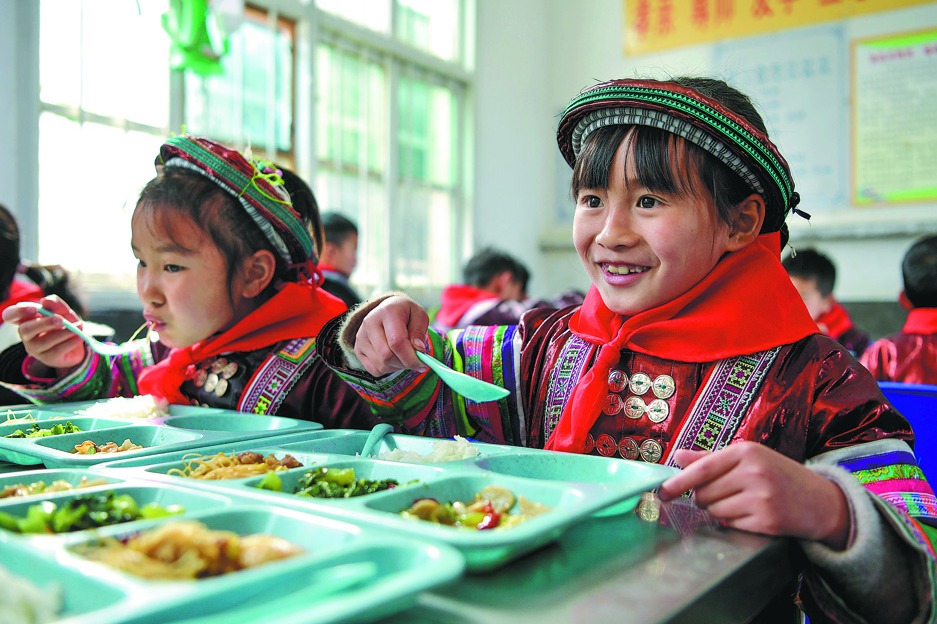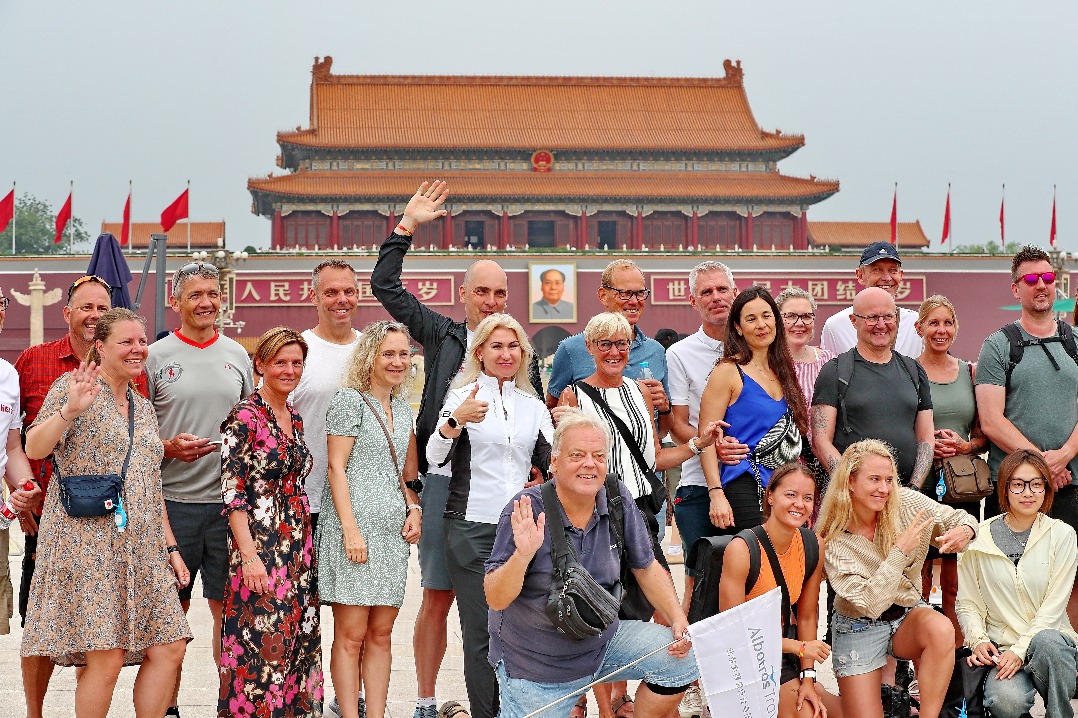No back tracking
By Cheng Dawei | China Daily Global | Updated: 2020-05-06 08:28

Despite the pandemic, globalization remains an inevitable and irreversible trend
As the novel coronavirus pandemic sweeps the world, the calls for the rolling back of globalization have been growing louder. There are also some advocating delinking the global industrial chains to reduce the importance of China, some believe that "limited" globalization will appear in the post-pandemic era, and some argue that medical materials should be produced within a country's borders.
All such claims show a lack of understanding of the logic of globalization. Only in a global market can trade, investment, production and consumption circulate in the most efficient way. The evolving forms of trade, investment, production and consumption move the globalization process forward. Thus, globalization is an inevitable trend, while the patterns are variable.
Then why is anti-globalization sentiment on the rise? The first reason is people's concerns about unemployment, especially among low-skilled workers, brought by the new technologies such as intelligent manufacturing.
Even for developed nations such as the United States, the loss of low-skilled jobs due to the new technological revolution has already happened. Despite the US endeavors to keep manufacturing jobs at home by means of protectionist policies, manufacturing accounts for only 8.5 percent of US jobs in 2018. Even if some industries do return to the US after the pandemic subsides, machines would still compete with human workers.
Since the second industrial revolution, the geographic distribution of production has experienced dramatic changes. As a result, countries fall into different scopes of competition, and have different perspectives on globalization. The huge disparities among countries have been laid bare in the global fight against COVID-19.
Take China for example. Thanks to its manufacturing capacity and well-developed transport network, China has been able to maintain the stability of its domestic supply chain during the pandemic outbreak. With solid internet infrastructure, mature digital payment and online consumption habits, the lives of ordinary people have not been seriously influenced during the quarantine period, and these have helped some industries to resume work and production.
But for many developing countries, quarantine on such a scale would create great difficulties. So, it is natural to hear different opinions on globalization during the pandemic.
Emerging technologies have given rise to the reshuffle of industries in many countries, and the pandemic will quicken this process. Developed and emerging economies are considering "how to produce"; while developing nations are still at the stage of thinking "produce what", which equates to how to realize industrialization. So different opinions are being heard.
But the wheels of history will not roll back to the stage of complete domestic production. The only way out is to look forward, rather than look back. Countries need to facilitate the circulation of production, trade and consumption in the global market.
In fact, Western countries have been trying for some time to bring their manufacturing industries back home, but they have not been successful. According to a survey of over 1,500 German manufacturing enterprises, only around 2 percent of German manufacturing companies actively came back to the country from 2010 to mid-2012. After the pandemic, countries will again try to encourage some industries to return home, which, according to historical experience, will not necessarily reflect the wishes of enterprises.
The pandemic will prompt some countries to redefine certain industries. For example, complaints about medicine safety have been repeatedly heard from US politicians during the pandemic. In fact, US pharmaceutical companies have successfully transitioned to produce more advanced medicines with higher market value, with the production of ordinary anti-bacterial medicines and vaccines transferred overseas. Developing countries including China are still underdogs in this sector.
The medical industry is expected to be more emphasized for its significance in national security, thus it will be pulled back home. If market rules are changed, then countries will negotiate new rules, and the deceptive sensationalism of anti-globalization could be used to gain an edge in such negotiations out of ulterior political motives.
Therefore, people should not be misguided by these voices and confused by the short-term uncertainties caused by the pandemic. Instead, we should stick to the rationale for globalization and its essence, follow its rules and brace for headwinds with an open mind.
One the other hand, more efforts should be made to boost capacity building during the pandemic. Enterprises should enhance their ability to utilize the new technologies through cultivating the information technology skills of employees and modernizing their management ideas, abandoning the traditional mode of outward expansion for their development.
On the other hand, it is necessary to innovate lifestyles and business models to offset the impact of pandemic. Multiple new business models have emerged during the outbreak, such as campaigns to sell products via livestreaming platforms. As of April 17, different e-commerce platforms had helped sell 796,000 tons of agricultural products from Hubei province, the region in China hardest hit by the pandemic.
The author is a professor of economics at Renmin University of China. The author contributed this article to China Watch, a think tank powered by China Daily. The views do not necessarily reflect those of China Daily.
























